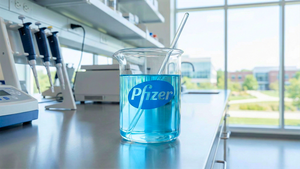-- Phase 2 Data Published Online in Nature Communications --
Phase 2 clinical results with HTD1801, a novel orally active ionic salt of berberine and ursodeoxycholic acid, substantially reduced liver fat while improving glycemic control and other cardiometabolic biomarkers in adults with nonalcoholic steatohepatitis (NASH) and type 2 diabetes (T2DM), have been published online in Nature Communications by HighTide Therapeutics.
The publication, available at this link, provides a comprehensive analysis showing that NASH/T2DM patients treated for 18 weeks with HTD1801 achieved both the primary endpoint of liver fat reduction and several important secondary endpoints including the improvement of markers associated with liver injury, glycemic control, cardiometabolic biomarkers in a dose-responsive manner. HTD1801 was generally well tolerated and no unexpected side effects were noted with its use.
“We are pleased to publish the encouraging results of this study of HTD1801 in Nature Communications. The totality of the data support our expectation that HTD1801 could benefit a significant number of patients with NASH and diabetes,” said Liping Liu, CEO of HighTide. “We are grateful to the patients and investigators who made this study possible.”
“NASH is often a liver manifestation of a systemic metabolic disorder,” said Stephen Harrison, MD, medical director of Pinnacle Clinical Research and lead author. “This trial in patients with presumed NASH and T2DM demonstrated HTD1801’s potential to treat NASH while also addressing the underlying metabolic driver of the disease. The study results show that HTD1801 is relatively well tolerated and merits further development as a treatment for NASH with diabetes.”
This Phase 2 study was a randomized, double-blind placebo-controlled trial across 17 U.S. sites that enrolled 100 subjects with fatty liver disease and diabetes who received either placebo, or HTD1801 500 mg or 1000 mg twice daily (BID). The study met its primary endpoint of reduction in liver fat content measured by magnetic resonance imaging proton density fat fraction (MRI-PDFF). Key secondary endpoints included improvement in glycemic control, liver-associated enzymes and safety. The pre-specified primary endpoint was met. Subjects receiving 1000 mg BID of HTD1801 had significantly greater reduction in liver fat content than in placebo recipients (mean absolute decrease -4.8% vs. -2.0%). Of note, 94 of 100 subjects were already taking medication for the treatment of their diabetes, often two or more agents, and the mean HbA1c level of all subjects was 7.1%. Despite this, mean HbA1c levels decreased by 0.6% in the 1000 mg BID group and 0.3% in the 500 mg BID group. Additionally, many patients were also taking lipid-lowering therapy and had further reductions in serum triglycerides and LDL-c. Compared to placebo, subjects receiving 1000 mg BID HTD1801 also experienced reductions in liver-associated enzymes and significant weight loss.
HTD1801 was reported to be generally well tolerated. The most frequent adverse event occurring during therapy was diarrhea while some subjects reported symptoms of gastrointestinal reflux or nausea. These adverse events were generally mild (grade 1 or 2, using CTCAE criteria). Three serious adverse events occurred during the conduct of this study, one in a placebo recipient and two on HTD1801, neither of which were attributed to study drug.
About NASH
NASH, a form of nonalcoholic fatty liver disease (NAFLD), is a chronic, complex liver disease characterized by hepatitis – inflammation of the liver – and liver cell damage, which can lead to fibrosis of the liver. NASH can also lead to cirrhosis and liver cancer. Prevalence of NASH is on the rise and may soon surpass hepatitis C as a cause for liver transplant in the U.S. and Europe. Currently, there are no approved therapies for NASH.
About HTD1801
HTD1801 is a first-in-class new molecular entity being developed for the treatment of primary sclerosing cholangitis (PSC), primary biliary cholangitis (PBC), nonalcoholic steatohepatitis comorbid with type 2 diabetes mellitus (NASH & T2DM), and T2DM comorbid with nonalcoholic fatty liver disease (T2DM & NAFLD).
HTD1801 has received Fast Track designation from the US FDA for both PSC and NASH, as well as Orphan Drug designation for PSC. In China, HTD1801 has been included in the National Major New Drug Innovation Program under the 13th Five-Year Plan for Major Technology Project.
About HighTide Therapeutics
HighTide Therapeutics Inc. is a clinical-stage biopharmaceutical company dedicated to the discovery and development of innovative therapeutics for gastrointestinal diseases and metabolic disorders, with a focus on areas of high unmet medical need and lack of effective treatment options. For additional information, please visit https://hightidetx.com.
View source version on businesswire.com: https://www.businesswire.com/news/home/20210921005115/en/
Contacts
Investor relations:
Jeffrey Dao
ir@hightidetx.com
Media relations:
Grace Zhang
media@hightidetx.com






